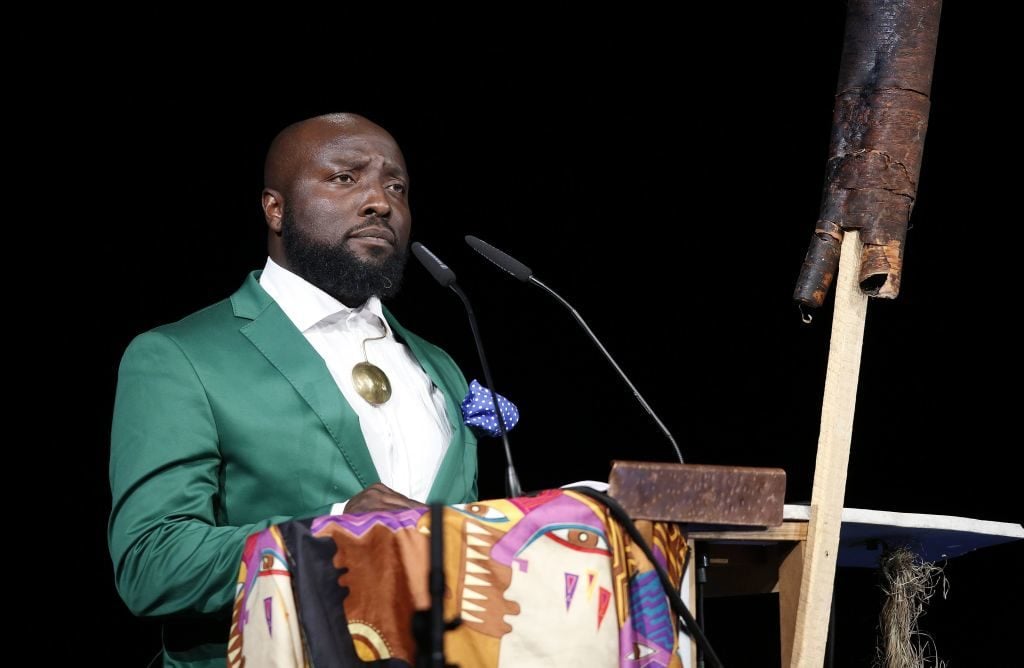Politics
documenta Artists Launch (Another) Petition Protesting Political and Financial Meddling
Christian Boltanski, Sam Durant, and Stanley Whitney are among those speaking out.

Christian Boltanski, Sam Durant, and Stanley Whitney are among those speaking out.

Henri Neuendorf

Over 250 artists, curators, and critics have released a new petition to “protect documenta against profit obsession.” Names attached to the statement include Christian Boltanski, Bonaventure Ndikung, Kerstin Brätsch, Hal Foster, Sam Durant, Cecilia Vicuna, and Stanley Whitney. They call upon the board of the world-famous German quinquennial to reaffirm the values of its founder Arnold Bode, who established the first edition in 1955 to help Europe overcome the divisions of World War II through an international contemporary art exhibition.
The petition follows the revelations in the German media that Adam Szymczyk’s documenta 14 went significantly over-budget, racked up $6 million in debt, and had to be rescued by $9.5 million in loan guarantees by its state shareholders, the city of Kassel and the state of Hesse.
In the new letter, the signatories address the public fallout between the board and the organizers that culminated in the termination of documenta CEO Annette Kulenkampff’s contract a year before it was due to expire. “We have been deeply worried by the public conflict between the board of supervisors of documenta gGmbH, and those who build and participated in documenta 14,” it states. “This ongoing conflict endangers the future autonomy of documenta as a radical exhibition, pushing it toward the same profit-above-everything motive that has corroded the political potential and emancipatory possibility of contemporary arts.”
Rather than focus on the money, the petition says that curator Adam Szymczyk “expanded non-western perspectives in contemporary culture, maintained distance from the commercial art market, and proposed new political geographies by having two equal size exhibitions in Athens and Kassel.” By contrast, recent public statements from authorities “[s]uggest that the history and mission of documenta is not fully appreciated, and therefore not adequately defended, by the current board of supervisors.”
While the signatories stop short of calling for the resignation of the board, they make five demands including a commitment towards the current structure of documenta (contravening the board’s plans to implement a financial controller to oversee spending and adherence to future budgets); board seats for representatives of “contemporary culture, education and international museum visitors”; no restrictions against staging the show outside of Germany; the full funding of the documenta archive and recently announced documenta institute; and the maintenance of the non-profit status of the documenta parent company.
The complete text of the new letter, below:
As participants in, and visitors to, various editions of the international art exhibition documenta X, 11, 12, (13) and 14, we have been deeply worried by the public conflict between the board of supervisors of documenta gGmbH, and those who built and participated in documenta 14. This ongoing conflict endangers the future autonomy of documenta as a radical exhibition, pushing it toward the same profit-above-everything motive that has corroded the political potential and emancipatory possibility of contemporary arts. We are compelled to write to propose an improved structure for documenta that does not prioritize revenue above all other priorities, and defends its’ future artistic and curatorial autonomy and progressive political mission.
Documenta 14 (Adam Szymczyk), building on the work of the previous four editions of documenta X (Catherine David), documenta 11 (Okwui Enwezor), documenta 12 (Roger Buergel / Ruth Noack), and dOCUMENTA (13) (Carolyn Christov-Bakargiev), expanded non-western perspectives in contemporary culture, maintained distance from the commercial art market, and proposed new political geographies by having two equal size exhibitions in Athens and Kassel. However, recent public statements [see links at end] suggest that the history and mission of documenta is not fully appreciated, and therefore not adequately defended, by the current board of supervisors.
Documenta was founded in 1955 on the remains of the city of Kassel that was one of the first sites of Nazi violence in 1933 and 1938– it was an exhibition whose mission, as imagined by founder Arnold Bode, was to encourage conversations in the contemporary arts that can oppose the spectres of nationalism, fascism and contemporary neo-nazism. The current board, comprising of elected officials (from SPD, CDU, GRÜNE, LINKE, and Independent) have remained silent while the far-right nationalist party AfD has called documenta 14 public artwork “entstellte Kunst,” evoking the Nazi term “degenerate art,” and sued the curatorial and management team, and the former Lord Mayor of Kassel who chaired the board for previous 14 years, in an act of intimidation.
The supervisory board ignored the voices of dissent from the representatives of Kulturstiftung des Bundes (Federal Foundation for Culture) in the board, and technocratically reduced documenta to a commercial enterprise. The current structure of documenta has shown itself to be unsuitable to the current political moment, lacking understanding of the larger significance of documenta, and the new concerns of contemporary art audiences around the world.
We therefore ask for the following:
1. Reaffirm a commitment in the structure of documenta, and implement specific steps toward, an end to eurocentrism, re-orienting towards the global south, decolonizing all arts and educational institutions, and opposition to war industry, institutional racism, and resurgent fascism.
2. A new supervisory structure should be designed for documenta, where elected public officials are joined by representatives of Contemporary Culture, Education, and International museum visitors.
3. No pre-existing conditions should be set to prevent the inclusion of other geographic sites outside Germany. Experimentation with the form and format of the exhibition must remain one of the essential freedoms of documenta.
4. Documenta should fully fund the development of the documenta archive, documenta institute, the public art program and organize these institutions based on the trajectory set by documenta X, 11, 12, (13) and 14 that contributed to profound changes that impacted understanding of art in our age.
5. The non-profit status of documenta gGmbH should be maintained.